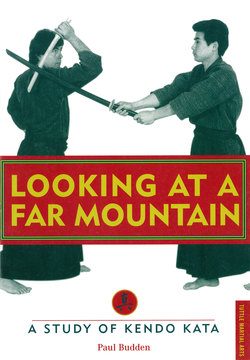Читать книгу Looking at a Far Mountain - Paul Budden - Страница 7
На сайте Литреса книга снята с продажи.
ОглавлениеACKNOWLEDGEMENTS
I would like to thank a number of people who have assisted in the bringing about of this study, either with background information and technical expertise, or by just supporting the venture and for putting up and practising with me over the past years.
Special thanks to:
Hideko and Les Denniston
Shoji Enomoto, Associate Professor in Faculty of Art and Letters, Nanzan University, Nagoya, Japan
Victor Harris, Curator Japanese Antiquities, British Museum
Kenji Hirose, Hanshi, Kodokan Kendo Dojo, Kyoto, Japan
Nobuo Hirakawa, Professor Meiji University, Tokyo, Japan
Terry Holt
Masayoshi Imasato, Associate Professor, Kendo Dept. Kyoto Sangyo University, Japan
Takeshi Kudoh, Kyoshi 7th Dan, All Japan Kendo Federation
Brian Kay, Director Eikoku News Digest, London
Jumpei Matsumoto, friend and fellow student in Kendo
Torao Ono, Kyoshi, Seijudo Kendo Dojo, Setagaya, Japan
Hiroyuki Shioiri, Associate Professor, Saitama University, Japan
Masatake Sumi, Professor, Dept. of Health and Physical Education, Fukuoka University of Education, Japan
Dr Haru-Hisa Takamatsu DVM.MS Ph.D
Peter Wells
To Yoshinori Inoue, fellow practitioner of the Kata, Tsuyako Suzuki for all her patience and kindness and to Goro Ohtaki, life long student of Musashi and without whose guidance and friendship this project would never have been attempted.
‘Humility is indeed endless.’
Finally to my wife Helen, for her tolerance and understanding throughout.
Photos in the technical section by Malcom Birkitt.
Books used in reference and photographic reproduction courtesy of Shoji Enomoto.
Jikishin kage Ryu No Kata by Meishin Saito 1901 (Meiji 34)
Budo Hokan-Showa Tenran Shiai Huroku Dai Nihon Yuben Kai 1930 (showa 5)
Shinsei Kendo Kyokasho by Goro Saimura and Kinji Kaneko 1931 (showa 6)
Kai Tei Teikoku Kendo Kyohan by Kinnosuke Ogawa 1937 (showa 12)
Other photos courtesy of Kodansha Ltd., Tokyo, Japan
Pictures of Sasamori sensei via Victor Harris
Front Kanji (Japanese Lettering) by Kenji Hirose
Inside Kanji for Technical section by Tsuyako Suzuki
Note on the origins of the calligraphy illustrating this book:
Kenji Hirose sensei was born in Kyoto in 1905, and joined Kodokan dojo in 1924. His teacher was Kinnoske Ogawa who was not only the founder of Kodokan, but was recognised as one of the greatest kendo teachers of his age. Hirose sensei was a diligent student and studied with sincerity under Ogawa sensei until his teacher’s death in 1962. Throughout his kendo career he won countless national and local competitions, and now at the age of 85 is still an active member of the same dojo he joined 66 years ago, teaching children and adults alike. He is 7th. dan Hanshi, and one of the most respected kendo teachers in Japan.
